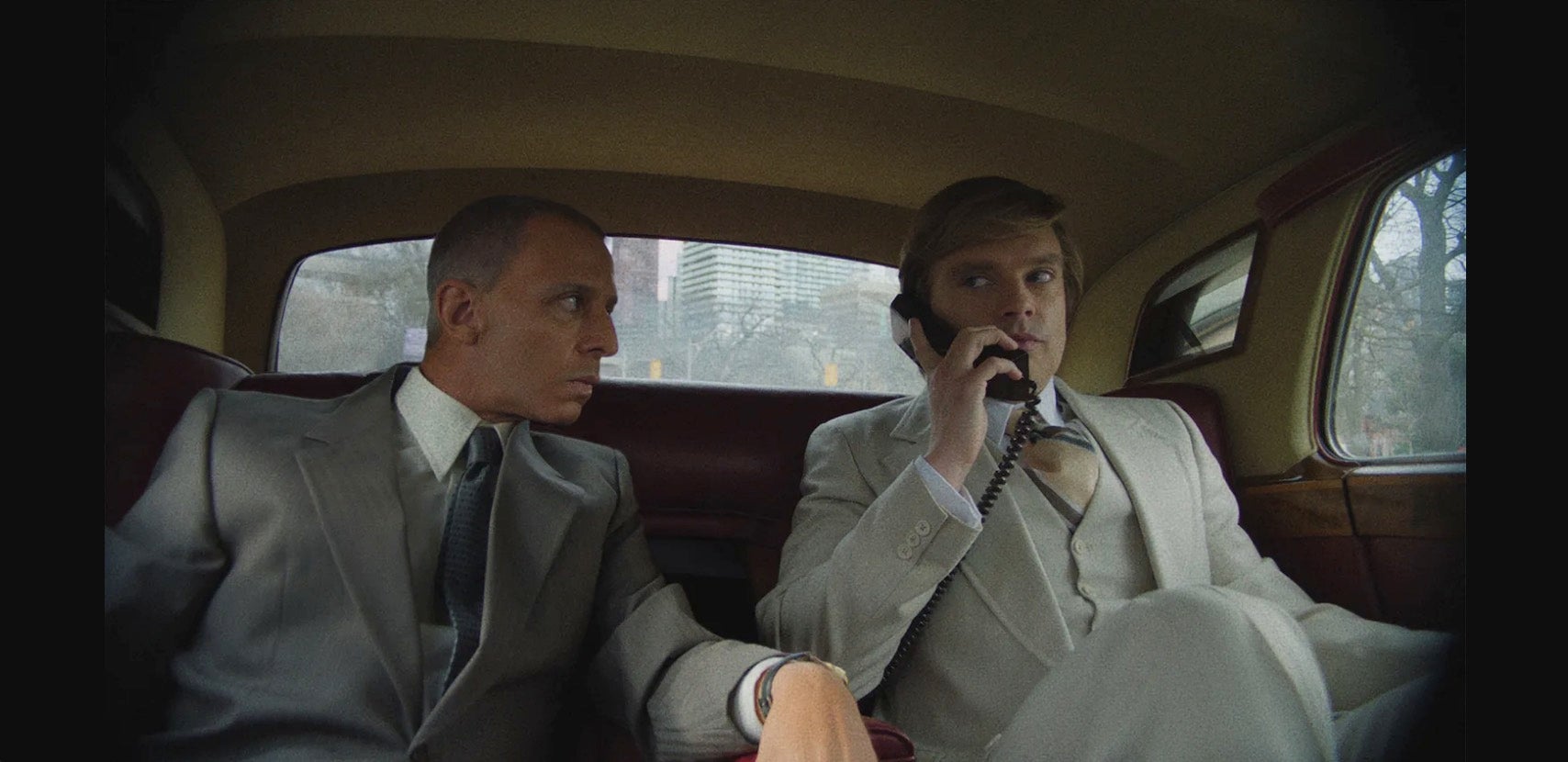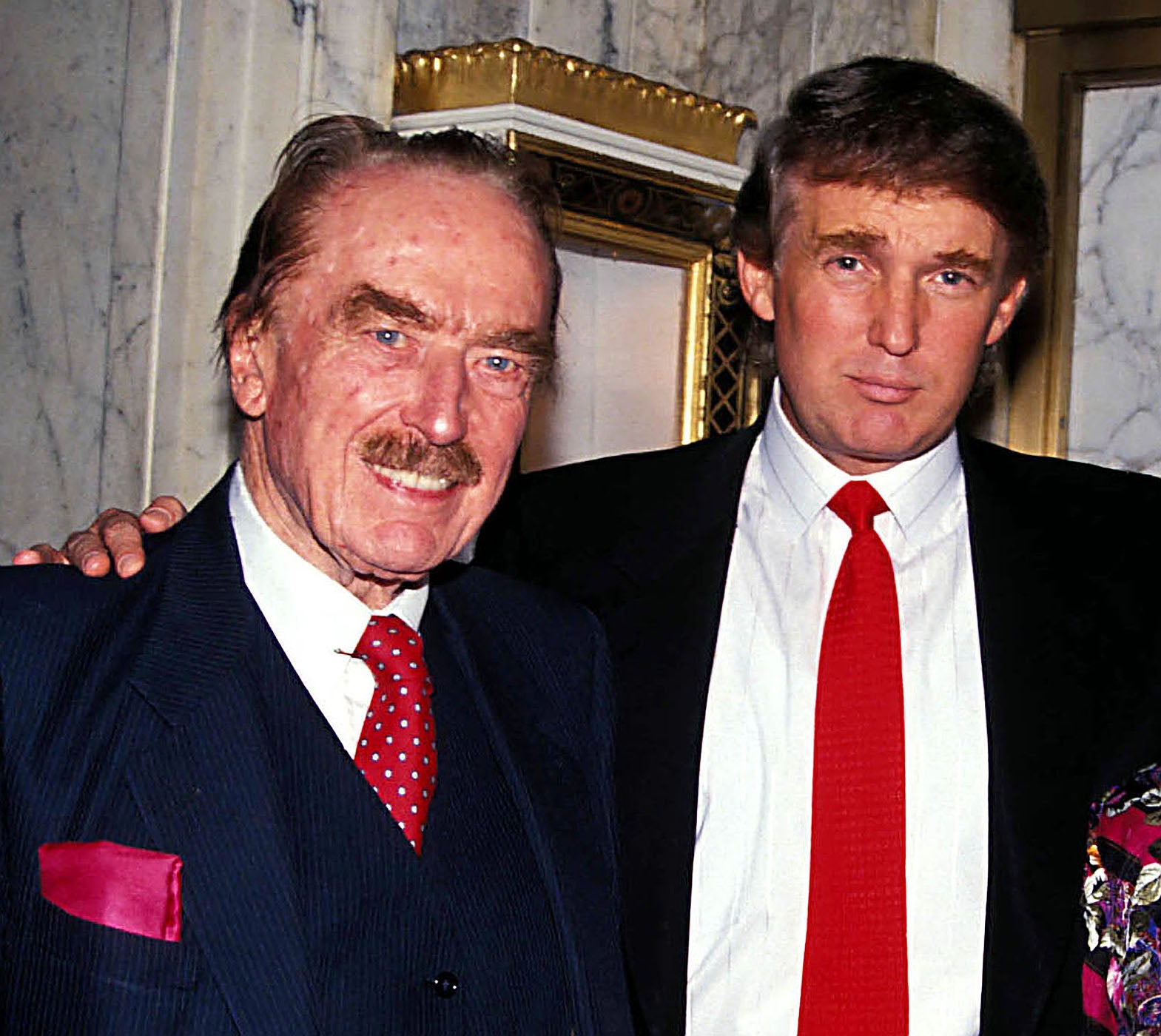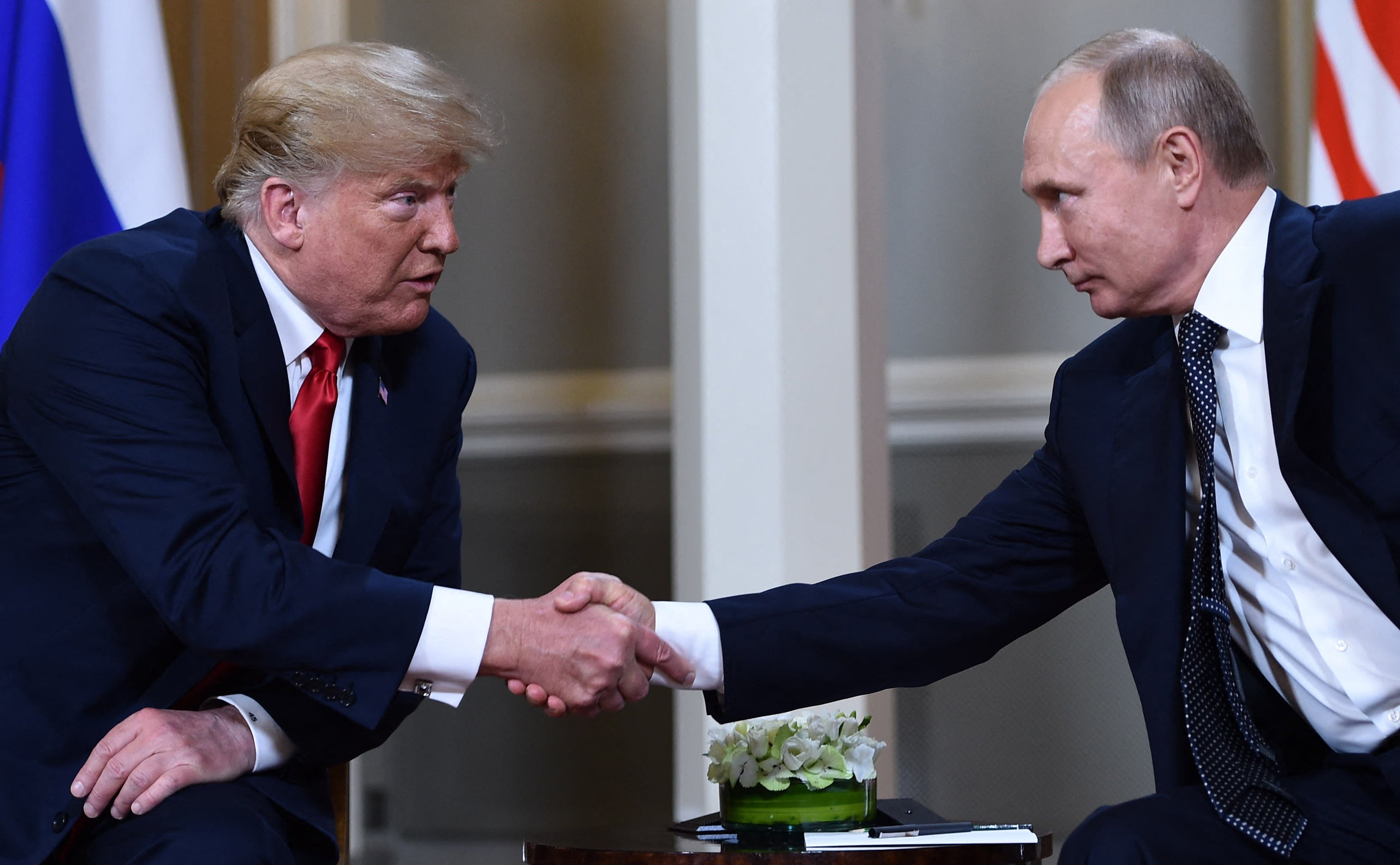Trump’s negotiations with Putin prove he just isn’t as good at deal-making as he thinks he is
As Trump appears to blame Ukraine for starting the war, saying the country could have made a deal earlier, Guy Walters, looks at the president’s track record when it comes to the art of the deal and it isn’t good...

In his 1987 book The Art of the Deal, Donald Trump gave his readers some excellent advice: “The worst thing you can possibly do in a deal is seem desperate to make it. That makes the other guy smell blood, and then you’re dead. The best thing you can do is deal from strength, and leverage is the biggest strength you can have. Leverage is having something the other guy wants. Or better yet, needs. Or best of all, simply can’t do without.”
It is a deep, deep shame, then, that the president is incapable of following his own advice – especially when it comes to his negotiations with Vladimir Putin over the future of Ukraine. In fact, in this case, he has done worse than that – he has done the exact opposite of what he himself advises, and handed over any leverage he might have had before the talks have even started.
Suggesting that Ukraine started the war, declaring that no US troops would be stationed there in any peace-keeping deal, and worse still, speculating that Ukraine “may be Russian some day”, he has left Putin in a position of immense strength.
Doubtless the laughter from the Kremlin can be heard 5,000 miles away in the White House. As Sir Alex Younger, the former head of MI6, said on the Today programme recently, “Giving it away up front feels strange” – and he added that it wasn’t the first time. It reminded him of Trump’s deal with Afghanistan during his first presidency.
This was, of course, the Doha Accord of 2020, which – despite a pumped-up Trump selling it as the deal of the century – ultimately gave the Taliban a clear route to power in Afghanistan, and plunged that benighted country back to the darkest of ages, especially for its women.
While the deal did require the Taliban not to harbour terrorists and to reduce attacks on Afghan governmental forces, such demands were utterly unenforceable, not least because the same deal idiotically saw the US massively cut its troops on the ground within just 135 days. As a result, thousands were killed in an upswing of Taliban attacks, deaths that surely could have been avoided or at least minimised had Trump secured a proper deal. As it was, Neville Chamberlain could have done a better job.
Then there was the utterly risible Phase One trade agreement that the United States signed with China in 2020. After hitting the country with trade tariffs, Trump signed a deal that committed China to buying $200bn worth of goods and services over two years. All this sounded absolutely dandy, but Trump – the supposedly master deal-maker – was easily outsmarted by the Chinese, who, according to the Peterson Institute of International Economics, did not purchase even one dollar’s worth of what they had signed up to.

Such a shoddy deal was startlingly reminiscent of Trump’s often disastrous commercial deals, many of which collapsed and cost millions. Think of the likes of Trump Shuttle (his doomed airline), Trump Vodka, and Trump University, all of which ended in abject failure. His Atlantic City casinos faced multiple bankruptcies, with the apparently great businessman Trump frequently relying on debt and complex financial manoeuvres to keep them afloat.
The truth is that Donald Trump’s purported skill of deal-making is just another fairytale we’ve been sold. In reality, it doesn't stand up to much scrutiny. And Trump’s complete inability to cut a good deal would be funny, if the potential consequences were not so deadly. While a bad deal in the business world may cost treasure, a bad deal on the world stage costs both treasure and blood. If Trump brokers what is now likely to be a terrible deal over the head of Volodymyr Zelensky, it is likely that thousands will suffer terribly under Putin’s jackboot – one that many believe will march over more Ukrainian territory in years to come.

But it is not just bad deals that Trump is so good at: he also excels at not being able to make a deal at all. Who can forget his meetings with the North Korean dictator, Kim Jong Un, a guy Trump said he could do business with? Despite promises of some form of settlement, all those encounters were a complete waste of jet fuel. In fact, North Korea is now even more entwined with China, and Kim is supplying arms and manpower to Russia to help support its war on Ukraine. It would have been better had Trump stayed on the golf course in Florida.
One of Trump’s biggest and most dangerous failures was his decision to pull out of the Iran nuclear deal. While Trump argued that the deal was flawed and did not sufficiently restrict Iran’s nuclear ambitions, pulling out of the agreement did not lead to a more effective alternative. Instead, Iran has resumed much of its nuclear programme, escalating tensions in a region that really does not need to be any more tense. It is now widely believed that Iran will have the ability to make a nuclear bomb within months, if not weeks.
As well as securing crappy deals – or indeed no deals – Trump’s negotiating style is also completely parlous. He has a hectoring and grandstanding approach, which seeks to bully and cow his opposite numbers with unrealistic demands. In The Art of the Deal, Trump was unapologetic: “My style of deal-making is quite simple and straightforward. I aim very high, and then I just keep pushing and pushing and pushing to get what I’m after.”

At first glance, this looks like an effective scare-tactic method, by which he goes high and meets somewhere in the middle. The problem comes, as for all bullies, when people stand up to him or refuse to play by his rules. In essence, he is like the petulant and vengeful child who seeks to destroy what he cannot have, and punishes with tariffs or boycotts.
But these “scorched earth” tactics are “really substitutes for failed negotiations across a broad swathe of US foreign policy”, argue Jeremy Shapiro and Philip H Gordon in a piece titled “Trump and the Rise of Sadistic Diplomacy” for Foreign Policy magazine.
They also point to his special talent for tearing up or abandoning existing agreements – the Paris Agreement, the Intermediate-Range Nuclear Forces (INF) Treaty, the Trans-Pacific Partnership, and the Treaty on Open Skies during his first administration – and his complete inability to put anything decent in their place. In fact, he often just drops the ball completely, leaving other world leaders to clear up the mess left in his wake.

There is another issue with Trump’s disastrous and combative approach. In business, you can afford to make a lot of enemies, largely because there are thousands of businesses out there. But with fewer than 200 countries in the world, negotiations and deals need to be conducted in a spirit of good faith, otherwise you risk alienating even your closest allies.
While the United States, with its immense resources, can of course get away with being high-handed, Trump is liable very quickly to use up what little store of goodwill America still enjoys. He is known to be transactional, but the truth is that many of these so-called deals end up harming the very people he is meant to be doing business for. Imposing punishing tariffs on other nations, for example, might make him look like the big man for five minutes, but how long before the public realise the tariffs will come at a cost to them too, as many economists predict?
But despite all this, Pete Hegseth, Trump’s new secretary of defence, told the world that his boss was “the best negotiator on the planet”. Such loyalty is perhaps understandable, but with Trump’s abysmal track record as a deal-maker, you really have to ask what planet he is on.





Join our commenting forum
Join thought-provoking conversations, follow other Independent readers and see their replies
Comments